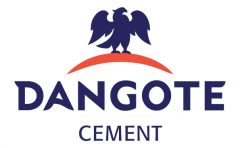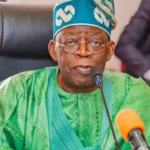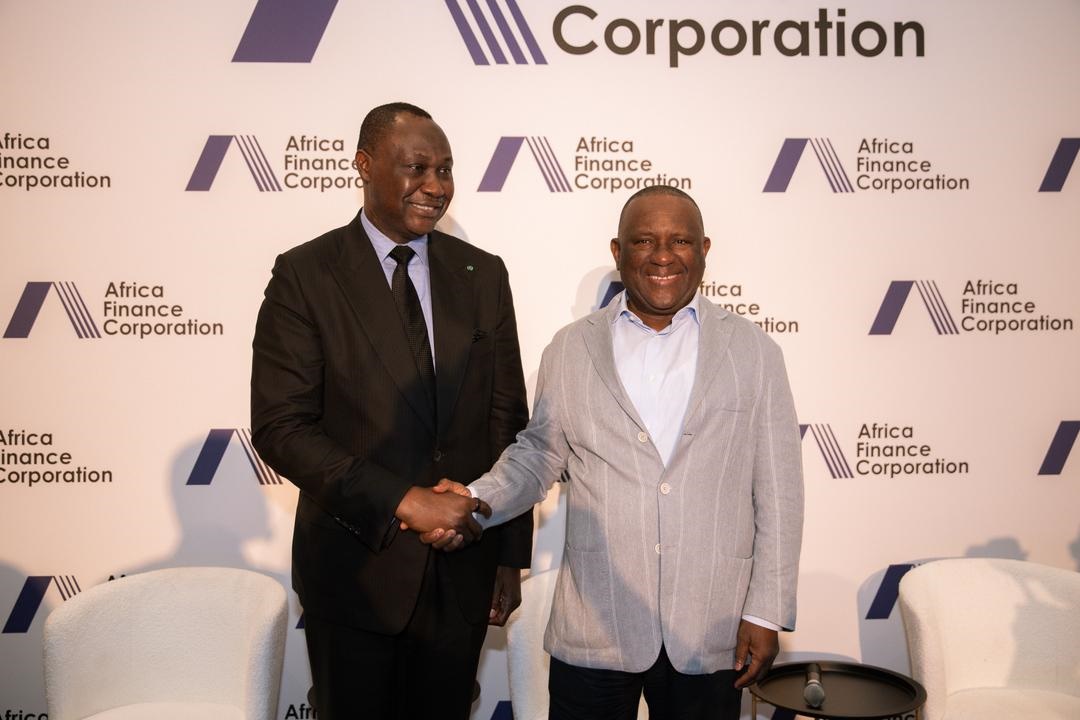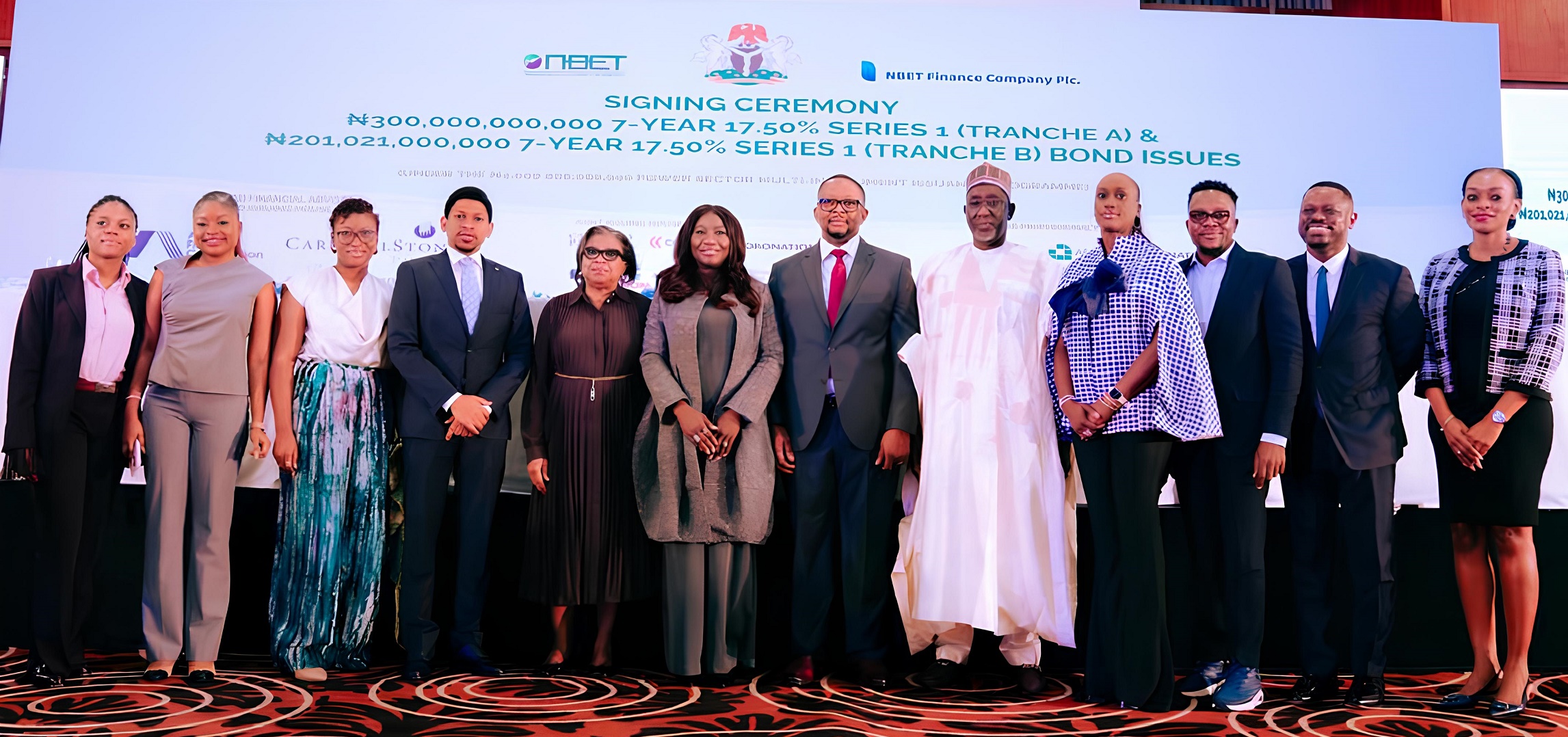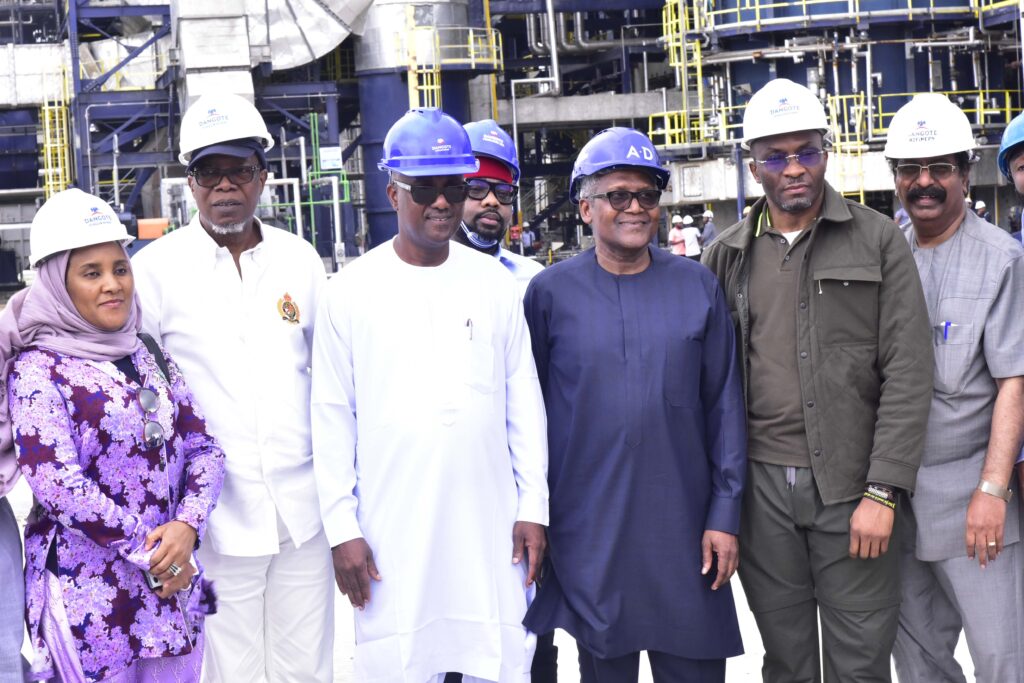
- Says Already Having Orders From Abroad
Caption: From left, Group Executive Director, Commercial Operations, Dangote Industries Limited, Fatima Aliko-Dangote; House Leader, House of Representatives, Hon. Julius Ihonvbere; Speaker, House of Representatives, Rt. Hon. Abbas Tajudeen; President/CE, Dangote Industries Limited, Aliko Dangote; Deputy Speaker, House of Representatives, Hon. Benjamin Kalu; Vice President, Oil & Gas, Dangote Industries Limited, Devakumar Edwin, during the Honourable Members of House of Representatives delegates visit to Dangote Petroleum Refinery, Petrochemicals and Fertiliser Plant in Lekki, on Saturday, July 20, 2024.
President of Dangote Group, Aliko Dangote, at the weekend wondered why a regulatory agency would be so quick to de-market products of its own country in a determination to sustain the age-long regime of importing dirty fuel into the country, resorting to lying rather than protecting the local industry describing it as unfortunate.
Reacting to a recent statement by an official of the industry regulator- the Nigerian Midstream and Downstream Petroleum Regulatory Authority (NMDPRA), Dangote challenged the National Assembly to set up an independent committee to “take samples at filling stations and take our own sample.”
“We didn’t know that you were going to ask us to stop by the road and take samples from other filling stations. I didn’t know what you wanted to do until we got here and you requested for a test. It is even good that it is your members that went directly to get our samples and I am sure you were shocked by the result. With the result, you can see that we produce the best diesel in Nigeria,” he stressed.
Speaking during a tour of both Dangote Petroleum Refinery & Petrochemicals and the Dangote Fertiliser Limited complex by members of the House of Representatives, Dangote insisted “that all the test certificates people are flaunting around are fake certificates.
“Where are the laboratories where those tests were conducted? By doing this, you will be able to tell Nigerians the very truth that they deserve to know,” he stressed.
Dangote noted that luckily, the refinery has continued to receive repeated orders for its products from all those who have purchased same since the commencement of production, exporting its products to some European countries like Singapore and offshore Lome.
“We produce the best diesel in Nigeria. It is disheartening that instead of safeguarding the market, the regulator is undermining it. Our doors are open for the regulator to conduct tests on our products anytime; transparency is paramount to us. It would be beneficial for the regulator to showcase its laboratory to the world so Nigerians can compare. Our interest is Nigeria first because if Nigeria doesn’t grow, we have limited capacity for growth.
“Right Honourable Speaker and esteemed members, you have witnessed the results of the credibility test. I appreciate your wise counsel in procuring samples from the filling stations alongside our refinery’s product.
“Ours shows a sulphur content of 87.6ppm, approximately 88, whereas the others exceeded 1,800ppm. Although the NMDPRA permits local refiners to produce diesel with sulphur content up to 650 ppm until January 2025, as approved by ECOWAS, ours is significantly lower.
“Next week, we aim to achieve 10ppm, aligning with the Euro V standard. Imported diesel is capped at 50ppm, but as you have seen, those from the stations, imported by major marketers, fall well outside this standard,” Dangote observed.
He pointed out that high-sulphur content diesel regularly imported into the country often comes with dubious certifications, emphasising that the most effective method to verify the quality is to purchase the product directly from filling stations and conduct credibility tests.
According to him, this issue has resulted in both health risks and financial losses for Nigerians.
“Dubious certifications often accompany the importation of high-sulphur diesel into Nigeria, causing both health risks and financial losses for Nigerians,” noted Dangote. “The best method to verify this is to purchase the product directly from filling stations where end-users obtain it.
“I believe Farouk Ahmed (Chief Executive of NMDPRA) speaks without sufficient knowledge of our refinery. We have successfully exported diesel and jet fuel to Europe and Asia without any complaints; in fact, we have received repeated orders, indicating satisfaction with our products,” he added.
Supporting Dangote’s assertion, Vice President of Gas and Oil at Dangote Industries Limited, Devakumar Edwin, highlighted recent actions by European countries like Belgium and the Netherlands which “have expressed concerns about the carcinogenic effects of high-sulphur diesel being dumped into the Nigerian market, prompting them to impose bans on such fuel exports to West Africa.”
Edwin informed the visitors that the Dangote Petroleum Refinery, designed to process a wide range of crudes, including various African and Middle Eastern crudes, as well as US Light Tight Oil, conforms to Euro V specifications. In addition, he said, it is designed to comply with US EPA (United States Environmental Protection Agency), European emission norms, Department of Petroleum Resources (DPR) emission/effluent norms, and the African Refiners and Distribution Association (ARDA) standards.
Assuring that products from the facility are of high quality which meet international standards, Edwin said it has the capacity to meet 100% of Nigeria’s demand for petrol, diesel, kerosene, and aviation Jet, with surpluses available for export.
The Group’s Vice President, Olakunle Alake, expressed disappointment over accusations of monopoly against the Dangote Group, stressing that there are multiple players in the industry, including the Nigerian National Petroleum Corporation (NNPC), which operates four refineries.
Expressing concern over the controversy surrounding the quality of imported refined products into Nigeria, Speaker of the House of Reps, Hon. Tajudeen Abass, stated that the Green Chamber would establish a committee to investigate the matter thoroughly.
He emphasised that sampled products from various sources would undergo testing as part of this initiative, expressing admiration for the infrastructure at the Dangote Oil Refinery, which he described as a significant asset in Nigeria’s quest for self-sufficiency in petroleum products. He noted that the refinery has positioned itself as a pivotal player, especially at a time when global concerns over energy security and sustainability are paramount.
“Today’s visit to the magnificent facilities of Dangote Industries Oil Refinery section has been nothing short of enlightening. It has afforded us a rare opportunity to witness first-hand the monumental strides that your organisation has made in transforming the landscape of petroleum production in Nigeria. The sheer scale and sophistication of this facility are awe-inspiring; it stands as a beacon of hope for our country as we navigate through the turbulent waters of energy supply challenges,” Abbas said.
Commending the state-of-the-art technology implemented at the petroleum refinery, Abbas praised it as revolutionary and a shining example of engineering and innovation excellence.
“Each corner of this facility resonates with the echoes of hard work, dedication, and an unyielding pursuit of quality. It is evident that every drop produced here carries not just oil but also the hopes and dreams of millions who yearn for a brighter future. We are deeply impressed by what we have seen during this visit which confirms the rating of this industry as the single largest oil refinery in Africa. This remarkable achievement does not merely reflect corporate success; it symbolises national pride, a tribute to what can be accompanied when visionary leadership meets relentless determination,” he said.
Acknowledging the numerous challenges likely encountered during the construction of the refinery, the Speaker lauded Dangote for his steadfast commitment to achieving excellence.
These, he said, include the “regulatory hurdles that often loom like dark clouds over progress, the complexities surrounding crude oil supplies that can stifle even the most ambitious endeavours, and the daunting economic landscape we navigate especially in these times when our economy grapples with foreign exchange constraints, are all formidable adversaries. Yet, despite these tribulations, your unwavering commitment to excellence shines through.”





